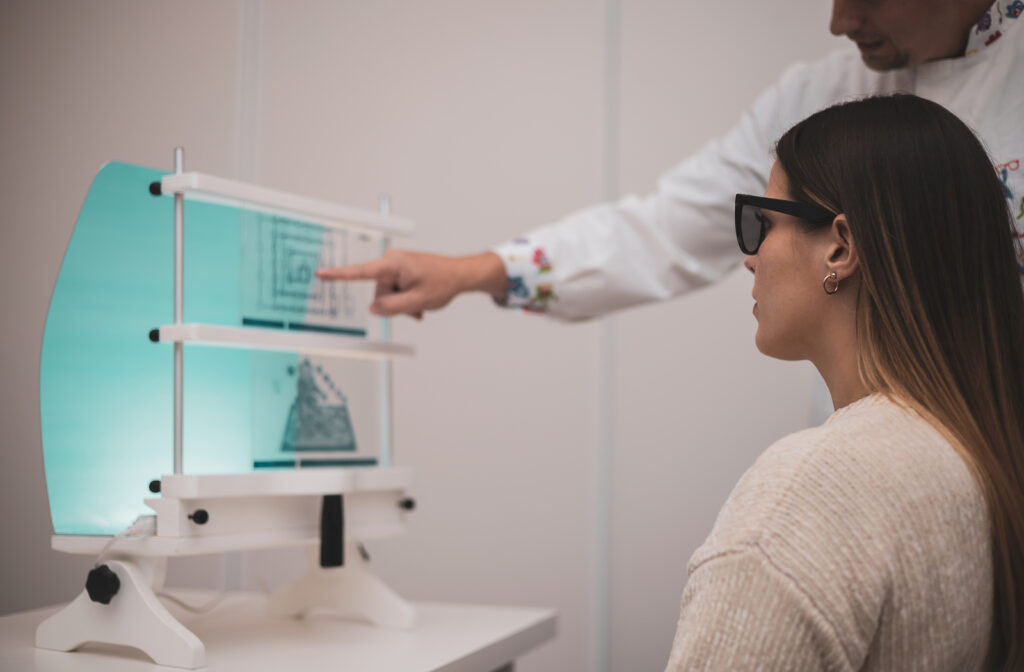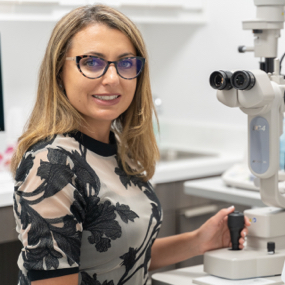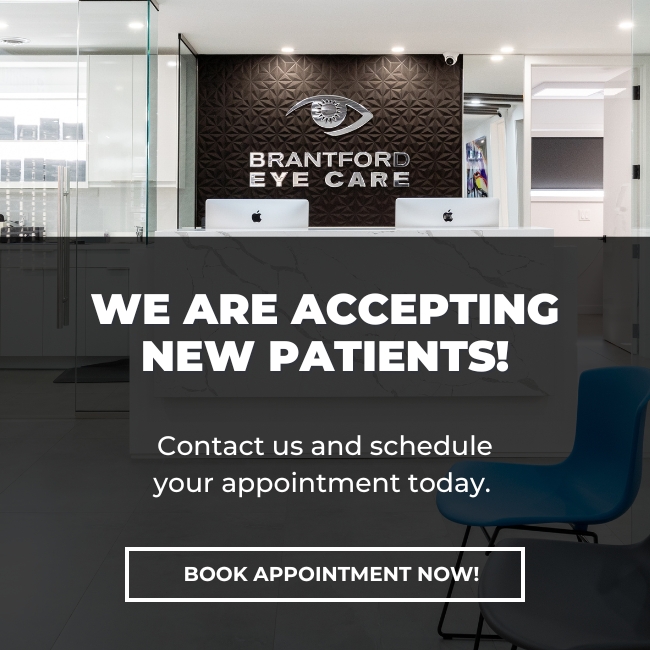You use your vision constantly throughout your day-to-day interactions with the world around you. Many people assume vision only affects how well you see, but you may have problems with your visual skills due to an injury, eye condition or poor development in childhood.
Vision therapy is an effective way to improve visual skills and abilities, and it can benefit someone at any age. If you’re interested in vision therapy, what conditions can this treatment help address?
Continue reading to learn more about vision therapy, including what conditions it can treat.
What Is Vision Therapy?
Vision therapy is a specialized treatment used to improve visual skills and abilities. While each person’s vision therapy program is unique, treatment includes one-on-one sessions with a trained therapist to retrain specific visual skills. A vision therapy program includes in-office and at-home exercises with increased difficulty as skills improve.
This treatment can benefit anyone, including children with learning-related vision problems, someone with amblyopia or strabismus, or someone with an acquired brain injury or concussion. Each person’s vision is unique, so every patient receives a personalized treatment program.
Your child may benefit from vision therapy if they experience any of the following:
- Poor reading comprehension
- Headaches during close-up tasks
- Words that run together when reading
- Forgetfulness
- Short attention span
- Writing that slopes up or downhill
- Holding objects close to the face
- Omitting small words when reading
- Clumsiness
The Importance of Vision Therapy
Your vision is essential—you utilize it daily when completing different tasks. For children, vision is vital for their development. Approximately 80% of learning is visual, so a vision problem may affect a child’s ability to do well in school.
There are many vital visual skills needed for everyday life, including:
- Eye-tracking: How the eyes follow moving objects
- Simultaneous alignment: How the eyes line up at the same point from different distances
- Depth perception: The assessment of how far away or close together objects are
- Visual perception: The ability to determine what is going on around you through visual cues
- Sustaining focus: The ability to keep viewing a clear image from various distances
Traumatic brain injuries and other similar issues can affect these visual skills. Another possibility is that these skills don’t develop, making focusing and other visual tasks harder.
What Conditions Can Vision Therapy Help Treat?
Vision therapy can help address several problems related to your vision. From specific conditions to how well your eyes work together, vision therapy can help improve your quality of life.
Amblyopia
Many people refer to amblyopia as a lazy eye. This condition occurs due to abnormal development during childhood, causing one eye to be weaker than the other. Amblyopia typically develops between birth and age 7, but many children don’t notice problems with their vision.
The more developed eye tends to take over visual tasks, causing the other eye to become weaker. This imbalance between the eyes can cause several vision-related problems, such as poor depth perception and reaction time.
Strabismus
Strabismus is a vision problem where the eyes don’t properly align. One eye begins to turn away because the eye muscles fail to work together. This condition is commonly hereditary.
Strabismus can lead to double vision or amblyopia due to the brain learning to ignore vision from the turned eye. This condition can affect someone’s visual skills, such as spatial awareness and attention span.
Convergence Insufficiency
Convergence insufficiency occurs when the eyes struggle to work together when looking at nearby objects. One eye turns outward instead of inward, causing double or blurry vision. This condition is common in children but can develop due to a brain injury, like a concussion.
Convergence insufficiency can make reading and concentration more difficult.
Eye Teaming Problems
Eye teaming refer to the eyes’ ability to work as a team, creating a single image when looking near or far. Visual confusion can occur when the eyes don’t work together. Someone may experience blurred vision, headaches, or struggles when reading.
Eye-Focusing Problems
The eyes relax and constrict when focusing on objects at different distances. Someone who struggles with eye focusing may have trouble working on close-up tasks. Headaches and blurred vision are common complaints when someone has eye-focusing problems.
Visual Processing Problems
Visual processing skills help you make sense of the surrounding world. Difficulty with these skills can lead to a struggle to notice differences and similarities between objects. Someone may struggle with reading or writing, such as reversing letters or words.
Eye Movement Problems
Your eye movement involves the ability to move both eyes along an intended path or at a specific target. You use these skills when reading or tracking moving targets. Someone with problems relating to eye movement may struggle with reading, skipping words or losing their place on a line.

See the Benefits of Vision Therapy for Yourself
Depending on your goals, vision therapy can help improve how your eyes work together and how you interpret visual information. Your vision therapy program can help you meet these goals with various exercises. There are many conditions vision therapy can help treat.
Contact your optometrist if you or your child has visual struggles. Your eye doctor can assess your vision and recommend if vision therapy is an appropriate treatment.




